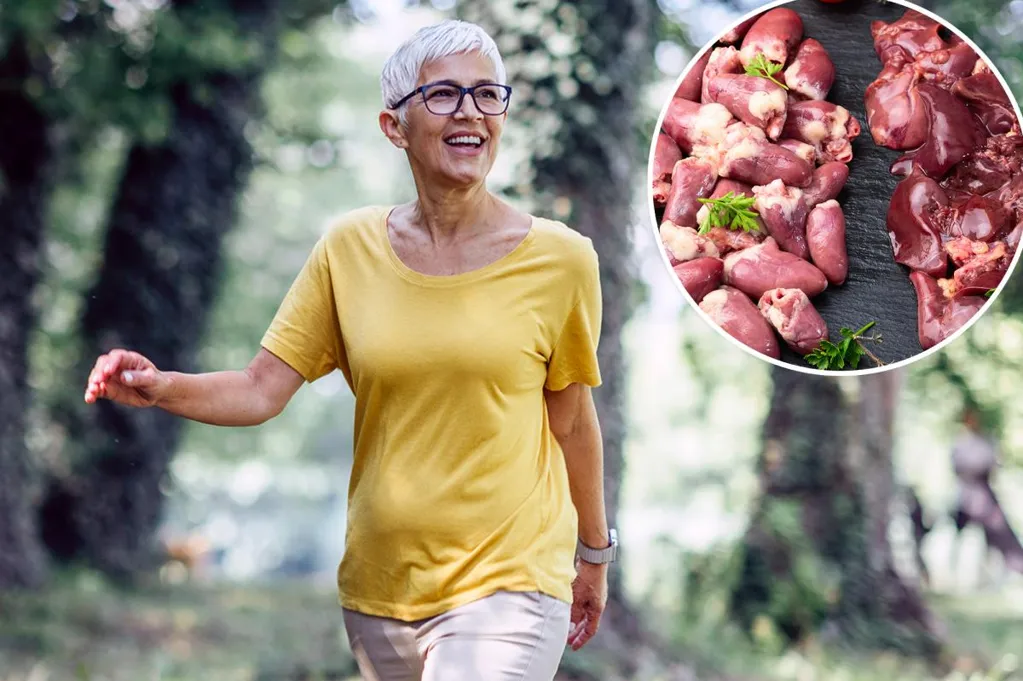The latest supplement craze may sound offal at first glance.
A growing number of women are turning to organ meat supplements as they navigate menopause, hoping the nutrient-packed capsules can ease symptoms and support their overall health through the hormonal roller coaster.
But do they live up to the hype? The Post spoke with Amy Shapiro, a registered dietician and nutritionist, to get the truth behind the trend -- and why some women may be better off skipping it.
During The Change, "both nutrient needs and physiological priorities shift," explained Shapiro, the founder and director of Real Nutrition.
Hormonal fluctuations can affect everything from bone health and body composition to cognition and cardiovascular risk.
"I recommend focusing extra attention on adequate protein intake," Shapiro said, suggesting women aim to consume 1.2 to 1.5 grams of protein per kilogram of their ideal body weight each day.
She also recommends women prioritize calcium and vitamin D for strong bones, B vitamins for energy and methylation, and anti-inflammatory nutrients like omega-3s and vitamin C.
"Nutrient absorption can change with age ... so monitoring and targeted supplementation or smart food choices become more important," she noted.
"Organ meats are among the most nutrient-dense whole foods out there," Shapiro said.
Small amounts of liver, heart, kidney or other organs pack concentrated protein and micronutrients that are harder to get from muscle meat or plants alone.
"Because of that profile, they can quickly fill common gaps -- for example, B12 and iron for people with low stores -- and support energy, blood health and immune function when used in moderation," she explained.
Organ meat supplements can be useful for perimenopausal and menopausal women with nutrient deficiencies or low animal protein intake, Shapiro said. They typically combine organs like liver, heart, and kidney into a convenient, freeze-dried powder available in capsule form.
Liver, often called "nature's multivitamin," is particularly nutrient-dense. Supplements containing it can support women with low B12, which can worsen fatigue, mood swings and brain fog commonly experienced during menopause.
It's also rich in B6, a key nutrient for producing serotonin, the "feel-good" neurotransmitter that dips during menopause and can contribute to mood swings and heightened anxiety.
Liver supplements also provide heme iron, which is absorbed more efficiently than plant-based iron. Women with heavy periods in perimenopause often see their iron levels drop, and supplements can help prevent iron-deficiency anemia.
Both beef liver and kidney, meanwhile, are packed with vitamin A, which regulates hormone production and supports skin health. This is especially important during menopause, when declining estrogen can cause dryness, thinning and wrinkles.
Vitamin A also boosts immune function, an important benefit as immunity naturally wanes with age.
Then there's coenzyme Q10 (CoQ10), found in liver and heart, which helps produce cellular energy and maintain cardiovascular health -- a key concern for postmenopausal women.
Organs like liver, kidney, heart, and tongue are also rich in zinc, supporting immunity, skin and wound healing.
Riboflavin in these organs aids energy production, hormonal balance and cognition while lowering homocysteine, a risk factor for bone fractures and osteoporosis.
"With all that said, clinical evidence specifically showing that organ supplements produce better menopause outcomes than a normal, balanced diet is limited. The nutrients can be helpful, but they're not magic bullets," Shapiro noted.
"If a woman is deficient (low B12 or low iron), an organ-based supplement can be a convenient option when food intake is poor, but it's best taken after testing and guidance from a clinician," she added.
"There are definitely some things to look out for and keep in mind," Shapiro said.
Organ-based supplements, especially those heavy in liver, contain preformed vitamin A, which can build up and become toxic in high doses. Too much iron can also cause problems.
"People with genetic iron-overload disorders, or those at risk, should avoid extra heme iron from concentrated organ products because it can worsen organ damage," Shapiro said. "Anyone with unexplained joint pain, fatigue, or elevated ferritin should get checked before taking iron-rich supplements."
Organ supplements may also interact with certain medications, like vitamin K, which can reduce the effectiveness of blood thinners such as warfarin.
They can also be risky for people with gout or certain lipid issues, so Shapiro recommends checking with a doctor first.
"I always recommend a food first approach when possible," Shapiro said.
If you can handle actual organ meats -- like a little sautéed liver or braised heart -- that's ideal. Whole foods are not only cheaper, but Shapiro said they come with extra benefits, including proteins, fats and vitamins that are often missing from supplements.
"I recommend avoiding daily high-dose organ supplements without medical supervision," she said. "For many people a modest, intermittent approach or a food-based serving once weekly is safer."
Concerned about the taste? Don't be a chicken.
Shapiro says tossing organs into stews or mixing them with ground beef for tacos or sauces can make them much more palatable.
